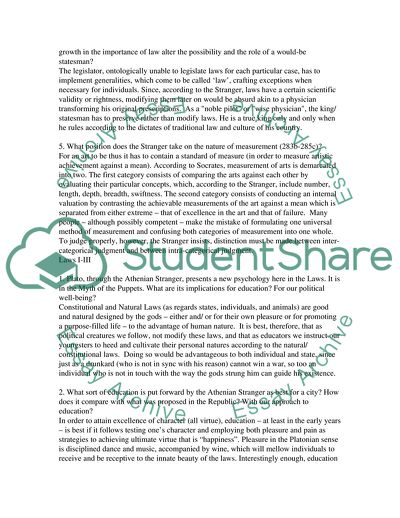Cite this document
(The Science of Shepherding Mankind - Statesman Book Report/Review Example | Topics and Well Written Essays - 1250 words, n.d.)
The Science of Shepherding Mankind - Statesman Book Report/Review Example | Topics and Well Written Essays - 1250 words. https://studentshare.org/philosophy/1734630-plato-statesman-and-laws
The Science of Shepherding Mankind - Statesman Book Report/Review Example | Topics and Well Written Essays - 1250 words. https://studentshare.org/philosophy/1734630-plato-statesman-and-laws
(The Science of Shepherding Mankind - Statesman Book Report/Review Example | Topics and Well Written Essays - 1250 Words)
The Science of Shepherding Mankind - Statesman Book Report/Review Example | Topics and Well Written Essays - 1250 Words. https://studentshare.org/philosophy/1734630-plato-statesman-and-laws.
The Science of Shepherding Mankind - Statesman Book Report/Review Example | Topics and Well Written Essays - 1250 Words. https://studentshare.org/philosophy/1734630-plato-statesman-and-laws.
“The Science of Shepherding Mankind - Statesman Book Report/Review Example | Topics and Well Written Essays - 1250 Words”. https://studentshare.org/philosophy/1734630-plato-statesman-and-laws.


